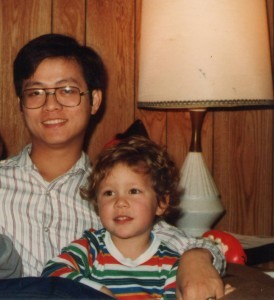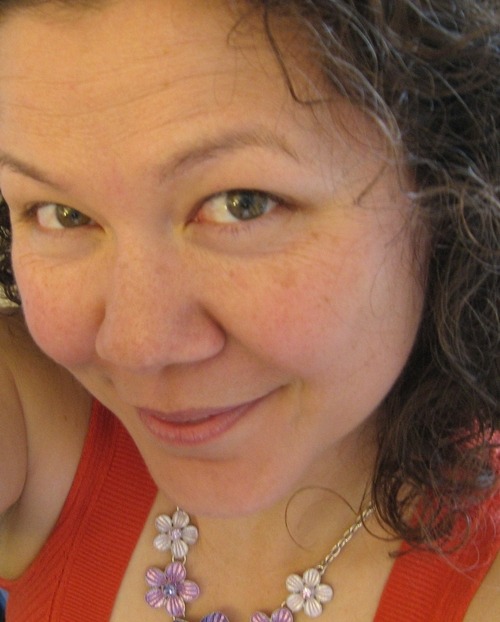CBC Diversity: Industry Q&A with debut author Crystal Chan
Tell us about your debut and how you came to write it.
Bird is a story about a 12-year-old girl named Jewel who was born on the day her brother John died. Jewel’s grandfather had nicknamed John “Bird”, and Bird thought he really could fly – at five years old, he jumped off a cliff. Grandpa hasn’t spoken a word since. Jewel is mixed race – Jamaican/Mexican/White – living in rural Iowa, and on the night of her 12th birthday, the anniversary of her brother’s death, she finds a boy in the tree she climbs. And his name is John. There are a lot of different beliefs in the Jamaican and Mexican cultures about what happens when you die, and this mysterious friend certainly upsets the silence in her house.
As for how the story started: I had just finished reading Keeper by Kathi Appelt, and was sick at home from work. I had also finished my first manuscript and was fretting that I might not have another idea for another novel. Ever. I was thinking about this for hours, and finally I got so sick of myself that I said, Crystal, either you get up out of bed and write your next book, or you go to sleep because you’re sick. But you’re not going to lie in bed thinking about not writing your next book.
And then I started thinking more about Keeper, and how I loved that story; it’s about a girl who thought her mother turned into a mermaid and goes out to sea in search of her. And I thought, A girl who thinks her mother was a mermaid – that’s such a great idea – but what if… there were a boy who thought he was a bird? What would he do? And immediately I saw this little kid, arms outstretched, jumping off a cliff because he thought he could fly. I remember gasping as I saw it play out in my mind. Then the voice of the protagonist, Jewel’s voice, started speaking – like started narrating to me – and I got out of bed and wrote down what she said. That’s how I wrote the first chapter of Bird.
Do you think of yourself as a diverse author?

Growing up, I had no stories reflecting my own experiences – no stories that showed the challenges and joys of being mixed race, of having only one parent come from another culture, of having cultural conflicts within the family unit, and so forth. At conferences they tell you to write the book you always wanted to read as a kid. So I wrote it. A lot of people on Goodreads and reviews and the like often say that my story is a unique story, they’ve never quite read anything like it. So if that’s what makes me a diverse author, then I guess I am. But really, I’m just interested in getting different kinds of stories out there, in giving a voice to that silent little mixed-race kid inside of me. I recently talked about what it was like growing up mixed race in Wisconsin on Wisconsin Public Radio. You can listen to my 3-minute essay, entitled “Exotic in Wisconsin”, here.
What does diversity mean to you as you think about your own books?
Diversity is a tricky word. Personally, I don’t really like that word – it conjures up images of everyone of different colors holding hands and singing. Diversity is hard work, plain and simple, and it means giving up a bit of your defined world to be able to let others in, to see the “other” as just as human as you are. I’ve been in “diversity groups” where people are different races, yes, but they’re all of the exact same political leaning and religious bent, they all have the same hobbies and interests. I’m not sure that’s diverse, I’m not sure that diversity is going to get us where we want to go. Personally, I think the word is too small, or at least how we’re thinking about it is too small. Just the fact that you’re asking this question (and I’m glad you are) raises the fact that there are many, many different ways to even define the word, and that people who use this same word can be actually meaning different things.
To me, though, diversity is not just having an array of races, but an array of life experiences. This could delight readers, inspire them, or make them uncomfortable. It’s hard work for everyone – the writer, the agent, the publishing team – to put diverse stories out into the world because you don’t know how they’ll perform in the market. That’s the business end, and that’s reality. So I think what is really necessary for diverse books to exist, at heart, is courage. All parties need buy-in. The author needs to write the story that no one might understand. The publisher needs to support it. The readers need to pick up a story that will take them outside of their known world (dragons or otherwise). It takes courage and flexibility and daring on everyone’s part, and that’s not something that just one person can do: it’s a philosophical mindset, a culture, a way of seeing the world. But at the very beginning is the author, the creator, and s/he needs to have the courage to say, hey, maybe no one will get this story, but I still need to write it. I need to give this story a voice.
What is your thought process in including or excluding characters of diverse backgrounds?
I think, what kind of person do I want to write about? And the answer is usually someone who isn’t represented frequently in literature. For instance, my best friend is Mexican-American, and while she’s a citizen now, she came over without papers. She and I talk about what it was like being called an “alien”, how that felt, how that affected how she saw her world, how she viewed white people. And while I might not write about her, per se, her stories of being on the outside, objectified, judged, silenced – that all influences the kind of characters I want to write about, the kind of obstacles they have to overcome. I don’t sit down and say, I want to write about a minority – I sit down and say What is this person’s story? What is their burden? What is their grief? And drawing from my own experiences and relationships, I build the characters, ground-up.
What is your opinion on authors writing about outside cultures?
Let me ask you first, what kind of authors are we talking about? Are these authors who talk about race, a lot, with people of different races? Are these authors who dig into their own biases and experiences and prejudices, who are willing to bring their own internalized racism into the light? Are these authors who interact intimately with people of different races and listen to their stories, learn how they view their world? Are these authors who have lived in a country where white is the minority? I think that writing about outside cultures takes a lot of work, especially for Caucasians, who are used to being on the inside and often times take their privileges for granted. That’s not to say it’s impossible. It can be done, and it has been done. But it takes a certain kind of intentionality and grit to do so. I can only hope that the number of authors that take on this challenge will continue to grow.


Crystal Chan grew up as a mixed-race kid in the middle of the Wisconsin cornfields and has been trying to find her place in the world ever since. When Crystal isn’t writing, she’s biking along the city streets of Chicago and talking to her pet turtle. Bird is her first novel.

